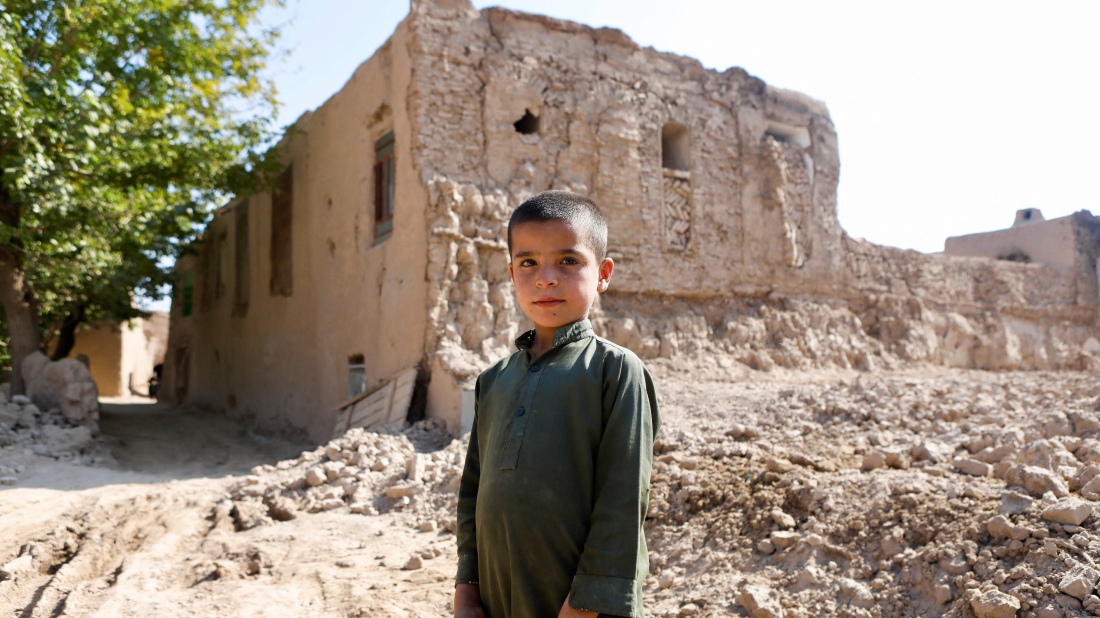live U.S. begins evacuation flights from region: All the latest news in Middle East conflict
Tensions across the Middle East are escalating following coordinated U.S. and Israeli strikes on Iran and Tehran’s retaliatory attacks, with ...

The U.S. decision to cut $560 million in food aid is deepening Afghanistan’s worst hunger crisis in decades, threatening millions. Aid groups warn of a “death sentence” as 23 million Afghans, including 3.5 million children, face life-threatening hunger.
The recent decision by the Trump administration to slash funding for the World Food Programme’s (WFP) emergency operations has sent shockwaves through the humanitarian community, putting millions of lives at risk in some of the world’s most vulnerable regions. Among the hardest hit is Afghanistan, where a devastating combination of economic collapse, drought, and ongoing instability has left nearly two-thirds of the population in desperate need of assistance. The WFP, the leading global organization fighting hunger, has issued a stark warning, calling the funding cuts a potential “death sentence” for those already on the brink of starvation.
Afghanistan’s humanitarian crisis has reached catastrophic levels, with the United Nations estimating that 23 million people, more than half the country, will require life-saving aid this year. The situation is particularly dire for children, as the nation faces its worst malnutrition crisis in history. According to WFP Acting Country Director Mutinta Chimuka, an alarming 3.5 million children are expected to suffer from acute malnutrition in 2024, with one child falling victim every ten seconds. The crisis has become so severe that even mothers, who are traditionally the primary caregivers, are themselves struggling with malnutrition, leaving families trapped in a vicious cycle of hunger and deprivation.
The scale of the funding cuts is staggering. Reports from The Associated Press indicate that approximately $560 million in U.S. humanitarian aid to Afghanistan has been withdrawn, dealing a crippling blow to essential services. The reduction has forced cuts to emergency food distributions, medical care for malnourished infants, access to clean water, and mental health support for survivors of violence.
As humanitarian agencies scramble to fill the gap left by the U.S. cuts, calls are growing for donor nations to step up before the situation spirals further out of control. The United Nation Assistance Mission in Afghanistan has called on the international donors to continue supporting the Afghan people. The plea comes ahead of a scheduled meeting of the Afghanistan Coordination Group, set to take place this week in Istanbul, Turkey.
U.S. President Donald Trump said the U.S. military has enough stockpiled weapons to fight wars "forever"; in a social media post late on Monday. The remarks came hours before conflict in Iran and the Middle East entered its fourth day.
U.S. first lady, Melania Trump chaired a UN Security Council meeting on children and education in conflict on Monday (2 March), a move criticised by Iran as hypocritical following U.S. and Israeli strikes that triggered a UN warning about risks to children.
A torpedo from a U.S. submarine sunk an Iranian warship off the coast of Sri Lanka, U.S. Secretary of Defense, Pete Hegseth told reporters as the Iranian conflcit entered its fifth day on Wednesday.
The U.S. embassy in Riyadh was hit by two drones resulting in a limited fire and some material damage, the kingdom's defence ministry said in a post on X on Tuesday, citing an initial assessment.
Shahid Motahari Sub-Speciality Hospital in northern Tehran and parts of the Golestan Palace were bombed on day two of the U.S.‑Israel strikes. AnewZ Touraj Shiralilou is in Iran's capital city and said that the facility was flattened in an airstrike.
Tensions across the Middle East are escalating following coordinated U.S. and Israeli strikes on Iran and Tehran’s retaliatory attacks, with military operations and regional security developments continuing to unfold.
The White House says deploying United States ground troops in Iran is not currently part of the military strategy in the ongoing conflict with Tehran.
A U.S. submarine strike sank an Iranian warship off the coast of Sri Lanka, leaving at least 80 dead, the country’s deputy foreign minister said. Meanwhile, Iran postponed the funeral of its late Supreme Leader Ali Khamenei, according to state media.
The election of Iran’s next supreme leader could provide an opportunity to end the ongoing regional war involving Israel, the U.S. and Iran, Türkiye’s Foreign Minister Hakan Fidan has said.
The U.S. Department of Defense has released a video of a submarine strike on an Iranian warship off the southern Sri Lankan coast. At least 80 people died in the U.S. attack on the vessel, Sri Lanka's Deputy Foreign Minister said.
You can download the AnewZ application from Play Store and the App Store.

What is your opinion on this topic?
Leave the first comment